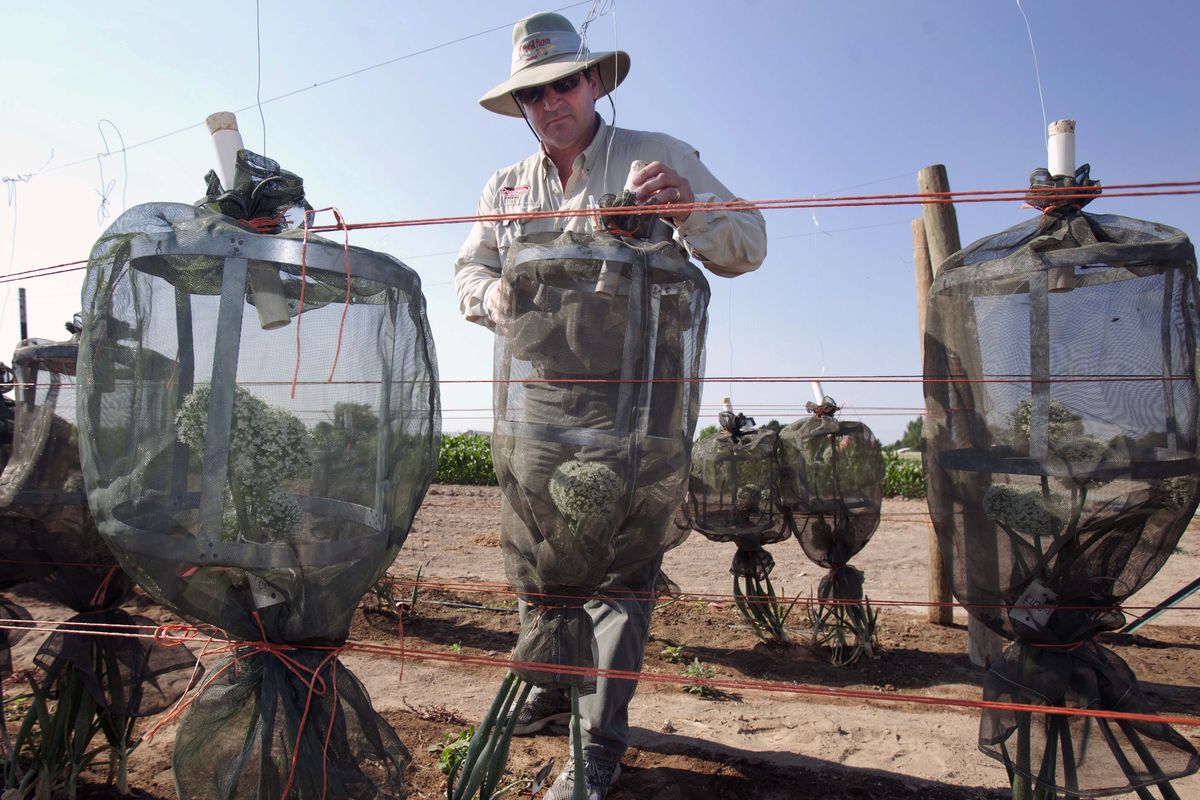Treasure Valley growers aim to fill seed demand

CALDWELL, Idaho – Dustin Batt, a straw hat shielding him from the sun on a blistering summer day, walks through chest-high acres of corn. He carries an electronic tablet where he writes down bits of information about each plant – height, hardiness, length of ears.
He’s looking for corn that will be bred and rebred. The plants will create seed for corn that will show up at your grocery store or in a can of sweet corn you buy for dinner.
In a year, Batt will pass by a million corn plants and save only about 500 of them.
“They are the best of the best,” he said.
Batt, 34, is a corn breeder for Crookham Co., a 101-year-old agriculture business in Caldwell that processes millions of pounds of seed – corn, popcorn and onion – each year for growers around the world.
It has plenty of company locally. About 40 seed companies – including big corporations such as Harris Moran, Monsanto and Syngenta and small businesses like Crookham – are taking advantage of spectacular growing conditions in the Treasure Valley.
It is unclear how many people they employ. But Crookham and Nunhems, a part of Germany-based Bayer Crop Science, each might employ more than 200 people during peak periods when seeds are processed.
Much of the Treasure Valley seed business operates on a similar model. Companies create hybrids, generate parent seed, and then contract with independent growers to plant those seeds to generate more seeds.
The growers raise and harvest the crops and bring their seeds back to companies such as Crookham, where they are screened, packaged and sold to growers who will turn them into crops for eating.
Companies say there is a worldwide demand for more and better seed.
Nunhems, whose U.S. headquarters is seven miles north of Parma, underwent a 50 percent, $30 million expansion in seed processing capacity in 2010 in Parma to help it meet a projected 75 percent increase in demand for seeds between 2010 and 2020.
Nunhems’ Parma plant processes onion and carrot seed, from seed grown by farmers in Idaho and Oregon. It also processes watermelon, tomatoes, cabbage, broccoli and other seeds from plants harvested elsewhere in the country. Nearly two-thirds of the processed crops at Parma come from Idaho and Eastern Oregon. Nearly a quarter come from California.
Demand for seed is growing inside and outside the United States as demand for food rises, said Stacy Woodruff, Nunhems’ global head of processing.
Canyon County’s location is part of the reason for growth in the seed industry in Idaho. Its arid climate and cold winters – good for killing bugs – make the region ideal for growing many types of seed. “There are not many places around the globe that are as conducive for seeds,” Woodruff said.
George Crookham, an owner of Crookham Co., has 100 acres not far from his seed plant where he constantly tests for the best onion and corn seeds.
He looks for ways to improve flavor and to make sure the corn grows to the tip of the cob, which is pleasing to consumers. “We eat so much with our eyes,” he said.